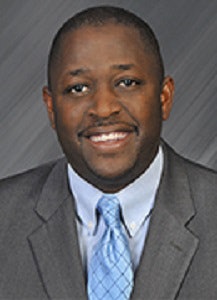It is no secret there are incredible gaps in our health care system today. In many major cities, you can go from neighborhood to neighborhood and see the average life expectancy drop by several decades. When you look at the underserved communities hit the hardest by health inequity, many are made up of diverse populations.
 Dr. Garth Graham
Dr. Garth GrahamThe data backs it up. According to the Centers for Disease Control (CDC), heart disease and diabetes are two of the top 10 leading causes of death among African-Americans and diabetes risk is more than 60 percent higher among Hispanics, compared to Caucasians.
The statistics are frustrating and the root causes can be blamed on a number of factors, including social determinants of health (SDOH), the cost of health care and other barriers to care. Another potential contributor is the persistent shortfalls in diversity in every segment of the biomedical career pipeline. We have a serious lack of diversity among medical professionals that is impacting the quality of care that people receive. Numerous studies have shown time and time again that patients from diverse communities are more trusting of doctors from their own communities.
While this is a difficult issue to address, there is also compelling research telling us that we may be able to help reduce disparities in health care and improve outcomes if we can simply increase diversity among health care providers.
That’s why the Aetna Foundation recently worked with Harvard Medical School (HMS) to establish the HMS Diversity Fund. This fund will help turbo-charge HMS efforts to offer programs for K-12 Science, Technology, Engineering and Math (STEM) education reinforcement, provide support for minority students and fellows, as well as leadership and faculty development opportunities. In addition, HMS’s diversity research program, Converge, will expand its efforts to address workforce diversity, human resource development, and human capital in the biomedical, behavioral science, and high demand STEM fields. This work will help bring a rigorous evidence base to our work on diversity and inclusion.
Over the next two years, it’s our hope that this funding will provide consistency to these efforts and better inform the diversity programs at HMS. The HMS Task Force on Diversity and Inclusion will present findings from our work together, highlighting the program’s successes and identifying areas for improvement. Beyond the HMS community, we hope these efforts will serve as a powerful model for other institutions to expand their own diversity and inclusion programs.
We know outreach and education can also be powerful conduits for change if relevant mentors are leading the way. One outstanding example is a traveling grassroots education initiative called Tour for Diversity in Medicine (T4D). Launched by two physicians who experienced gaps in care firsthand, T4D connects high school and undergraduate students with current minority physicians, dentists, pharmacists and medical students who can help them navigate the graduate school application process. Since 2012, T4D leaders have visited more than 40 Historically Black Colleges and Universities (HBCUs), Hispanic Serving Institutions (HSIs) and community colleges and mentored more than 3,500 students.
For too long, African-Americans, Native Americans and Hispanics have struggled to gain adequate representation in medicine and access to pathways for successful biomedical careers. We are committed to overcoming this challenge by working across sectors – from nonprofit, private and education spheres – to help expand the field of future leaders in health care.
Together, we can help bridge the health divide for members of diverse communities. By increasing opportunities for diverse populations, we are not only promoting diversity and inclusion among our ranks as providers – we are setting the stage to help improve outcomes for our most vulnerable communities.
Dr. Garth Graham is the President and Vice President of Community Health at the Aetna Foundation and Chair of the Harvard Medical School Diversity Fund Committee.





















